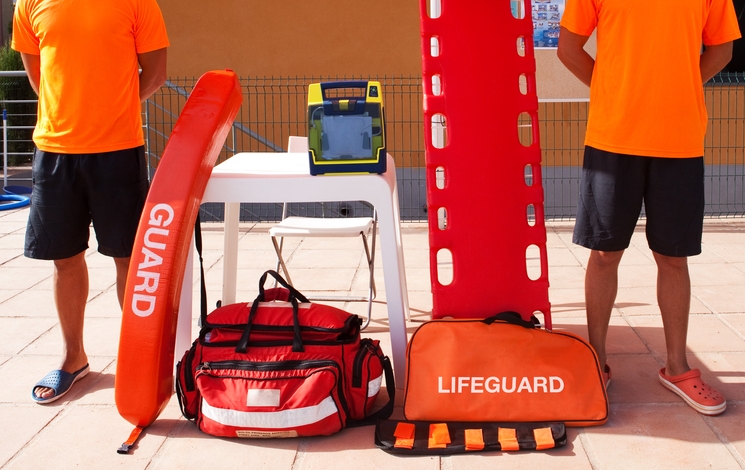For Lifeguards, Professionalism Matters

You’re off from school, ready to have a good time with your friends, and looking forward to making some money and gaining some good experience. These are the perks that make a summer job lifeguarding a pretty sweet gig.
Even when you work an awesome job, you can still have days when you feel “off” or less motivated. When this happens, it’s important to remember that lifeguarding is a job that requires a high level of professionalism. What makes professionalism so important?
Your attitude affects how safe patrons feel.
When swimmers and parents see you slouching, twirling your whistle, or not having your rescue tube in the proper position, they can read your body language to tell that your head isn’t in the game. For parents, this can raise warning bells: If they don’t think their kids are safe under your watch, they may choose to go to another pool. For swimmers, your lack of enthusiasm could cue them not to take you seriously. You may end up having a harder time enforcing the rules, and this can potentially lead to some dangerous situations.
You’ll get more respect.
Patrons who sense you take your job seriously will automatically give you more respect. Once you’ve earned respect, you’ll have an easier time communicating effectively with swimmers, parents, and other patrons at the pool. Instead of thinking, “Why should I listen to that guy? He doesn’t care,” patrons know that when you speak up, it’s for good reason. And they’ll listen.
You’ll be ready to respond.
When you maintain a professional mindset and take your responsibilities seriously, it’s much easier to respond to unsafe behaviors or true emergencies. Professionalism as a lifeguard involves being vigilant and practicing effective scanning techniques, so that you can spot swimmers in distress as soon as possible and spring into action. You’ll also be able to head off any unsafe behaviors, like breath-holding competitions or horseplay around the pool, before they turn dangerous.
You’ll build bridges for future employment.
When you display a high degree of professionalism as a lifeguard, your supervisors can’t help but notice. They’ll be much more apt to hire you back to work next summer, or to provide a glowing reference if you decide to pursue a job elsewhere.
So even when you’re having a bad day, remember that you’re a leader at your pool, and it’s only natural for people to watch how you act. Exhibit a professional demeanor, and earn the respect of your patrons and pool manager, while gaining great experience that you can take with you as you embark on your career.
Want to know other ways lifeguarding helps you prepare for the professional road ahead? Read our blog post, “Boost Your Resume by Lifeguarding.”
